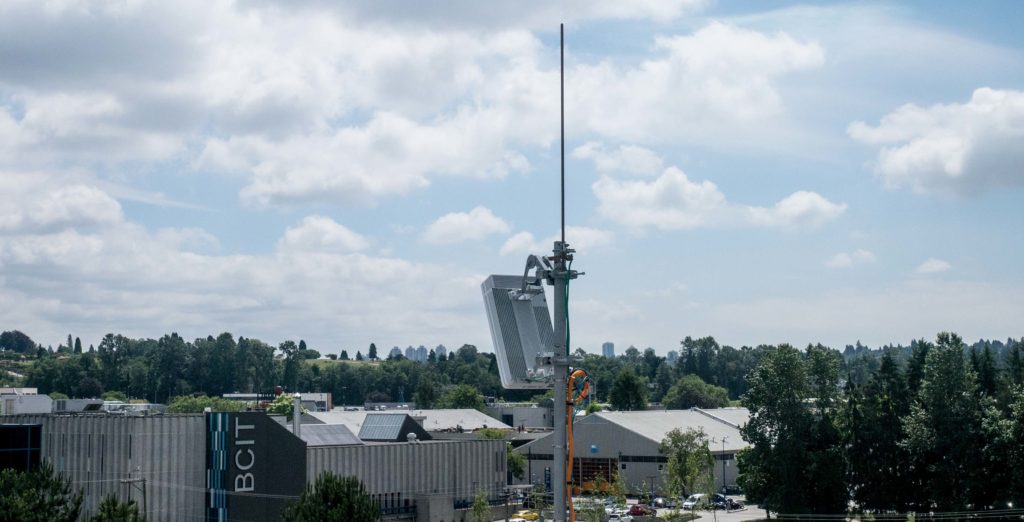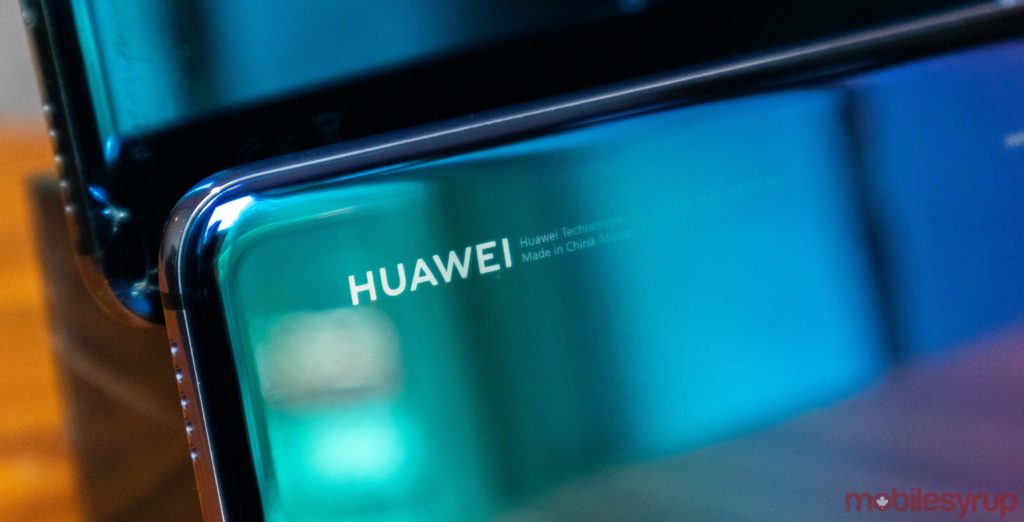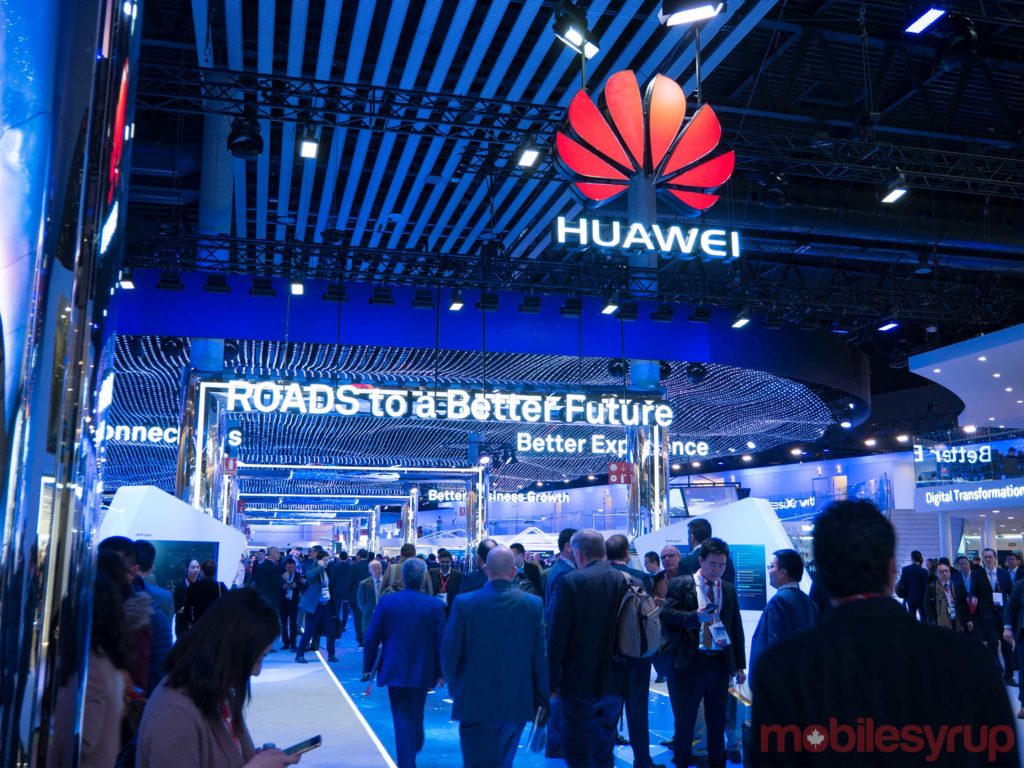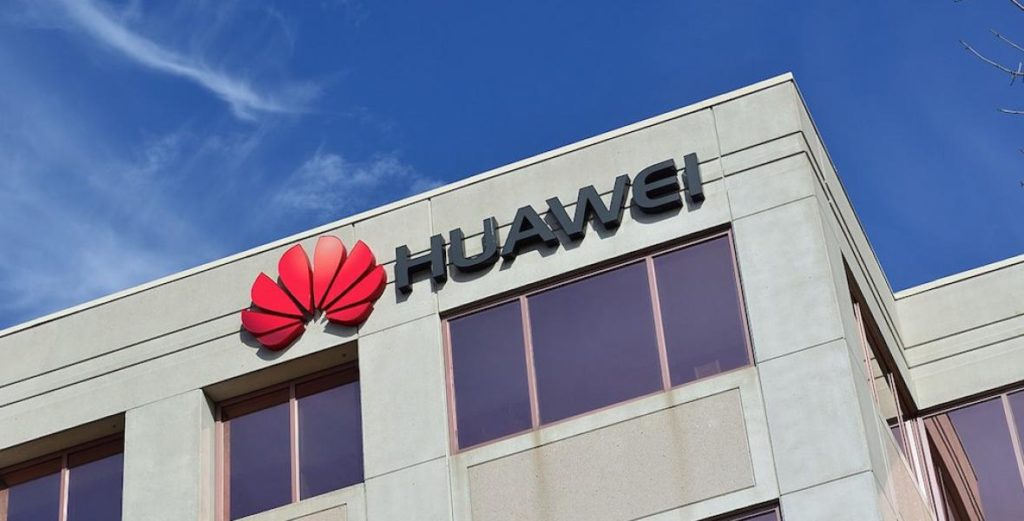Huawei’s chairmen talks rebuilding relationship, Telus confirms equipment is not interoperable

One of Huawei’s rotating chairmen says the only way to rebuild Canada’s trust in Huawei is with evidence and facts and added that its equipment isn’t interoperable yet in Canada but is researching ways for other equipment to function on its equipment.
Speaking through an interpreter, Eric Xu spoke openly with four reporters about his relationship with Canada and the company’s evolution in the country.
In an effort to rebuild its relationship with Canada, the company invited reporters to explore its headquarters in Shenzhen, China in order to have a better understanding of its work in the telecom space.
“Trust is something that develops and evolves as a society and the world develops, but trust must be based on facts and evidence,” Xu said. “It should not be based on suspicions, assumptions or the identity of the country of origin of any company.”
Tensions between Canada and China began shortly after Huawei’s global CFO Meng Wanzhou was arrested in December. Since then, the Chinese government arrested two Canadian diplomats alleging they are a national security threat. The country has also sentenced a Canadian drug dealer to death. The U.S. charged Huawei and its subsidiary Skycom with 13 counts of bank and wire fraud. Canada has proceeded with the extradition case of Meng, Meng has sued Canada’s RCMP and the CBSA, and Huawei has sued the U.S. and pleaded not guilty to charges.
Xu said, as has Huawei in the past, that the people involved in this frosty relationship are the victims and because of political strife between China and the U.S., the good relationship with Canada has been affected.

Huawei isn’t interoperable yet, will ‘adhere’ to 3GPP standards
The company has partnered with national carriers Bell and Telus to deploy network infrastructure, and specifically, it provides the base stations and home access equipment.
Xu noted that the companies’ networks in Canada are not operated by Huawei but by the telecom operators.
Currently, the two carriers use Huawei radio network cell towers to deploy 3G and 4G LTE networks, but the two have confirmed that the Chinese telecommunications equipment giant does not provide any equipment to its core network.
More recently, another one of Huawei’s three rotating chairmen Liang Hua, told reporters during a roundtable discussion in Toronto that even if Canada’s government bans Huawei from participating in providing 5G network infrastructure, it would be committed to Canada.
Public Safety Minister Ralph Goodale is currently overseeing two independent reviews, one on 5G in the country and the other on Huawei and national security. Neither report has been released and Canada has not banned the company yet.
But it might be worth noting that Huawei’s equipment is not interoperable. That means that another vendor’s equipment won’t be able to function if it is used on Huawei’s existing infrastructure.
A Telus executive not authorized to speak publicly confirmed to MobileSyrup before the trip to China that Telus is unable to use any other vendor’s equipment on its current infrastructure.
The Telus executive explained that when it is time to deploy 5G networks, new equipment is essentially added onto the existing equipment that deploys 3G and 4G.
Specific to the company, the executive said that it was impossible to use any other vendor on top of Huawei’s existing infrastructure and 100 percent of its radio cell towers are all Huawei. This would mean millions of dollars to rip apart existing infrastructure in order to deploy new equipment that allows for the use of other vendors like Nokia or Ericsson that also create network infrastructure.
The Telus executive did note that its core network consists of Cisco, Ericsson and Nokia and that the reason a company uses multiple vendors is so that it is harder for someone to hack the system.
Xu addressed interoperability at the roundtable, but also in a separate email to MobileSyrup.
“In Canada, Huawei works only with wireless equipment and Huawei’s equipment strictly adheres to all 3GPP standards. Equipment is interoperable as and when required by relevant standards,” Xu said in the email.
3GPP is the 3rd Generation Partnership Project that provides standards for which protocols are developed for mobile telephony.
According to its website, standards for 5G interoperability, or the ability for other equipment to function on existing equipment is still being set out.
“3GPP has been continuing its efforts to ensure full functional integrity and interoperability of 5G…specifications, especially in light of the imminent first deployments,” the website reads.
Xu explained in the email that interoperability can be achieved through open testing and that at the end of the day “the best solution to build a network for multiple generations of network technology is a choice to be made by telecom operators.”

Chinese laws are concerning, making people wary of Huawei
One of the biggest concerns that Canada and most of the majority of Western countries have is with a draft of China’s national intelligence law that was released in 2017. The proposed law says that all Chinese companies “shall support, cooperate with and collaborate in national intelligence work, and maintain the secrecy of national intelligence work they are aware of.”
But Huawei on multiple occasions has said it would ever comply with this law.
Xu reiterated this by saying that if the company was ever asked by the Chinese government to spy on its behalf it “would shut the company down.”
Huawei’s push for rebuilding relationships has been further amped
So how was this media roundtable different than the one the company had with reporters a few weeks ago, or when the CBC’s Beijing correspondent went to tour its campus, or when Huawei’s founder Ren Zhengfei spoke with reporters in January, or when he spoke with CTV’s Lisa LaFlamme last week?
It wasn’t any different, and Xu humbly smiled and said it was going to be “challenging” to say anything different than what Huawei has already said in the past.
“Maybe I have one advantage here and that is that over the last 10 years I went to Canada many times, visited many cities and many universities. I’ve talked to a number of government agencies and therefore it might be one of my strengths, in the sense, I can talk about my connection to Canada,” he said.

Universities wanted the help of Huawei
Xu did explain his strong relationship to Canada. Huawei has been in Canada since 2008 and since then has fostered close ties with 13 universities.
“Our partnership with universities account for 10 percent of our total spend in funding and partnerships,” Xu said. Huawei has spent $300 million USD (about $402 million CAD) per year on universities around the world.
Xu said Huawei invested into Canada because Canada had “expressed” an interest in having the company invest in research and development.
“[Universities] had a significant desire to work with Huawei and there was a significant amount of people who were interested in it and that made me have a strong desire to increase the research and development,” he said, adding Huawei help lay the foundation for the future of research and development.
Huawei Canada has research facilities in Montreal, Toronto, Waterloo, Edmonton and Vancouver.
With the size of R&D in Canada, Huawei ranks 22nd in 2017. Xu expanded by saying R&D has helped further develop 5G.

Huawei intends to keep growing in Canada
To further demonstrate its commitment to Canada, Huawei Canada recently expanded its presence in the country by adding 200 new research and development jobs and increased R&D investments by 15 percent.
During the roundtable, Liang said the new R&D investments will help it grow its relationship with Canadian businesses. In January, the Canadian division’s president Eric Li said the company was set to receive a portion of the $2 billion USD (about $2.6 billion CAD) that its Chinese parent company planned to spend over five years.
Currently, Huawei Canada employs nearly 1,000 Canadians, of which 500 are dedicated to R&D.
Xu noted that he hopes to grow that in the future.
The post Huawei’s chairmen talks rebuilding relationship, Telus confirms equipment is not interoperable appeared first on MobileSyrup.
from MobileSyrup https://ift.tt/2WrMwPl
Labels: MobileSyrup
0 Comments:
Post a Comment
Subscribe to Post Comments [Atom]
<< Home